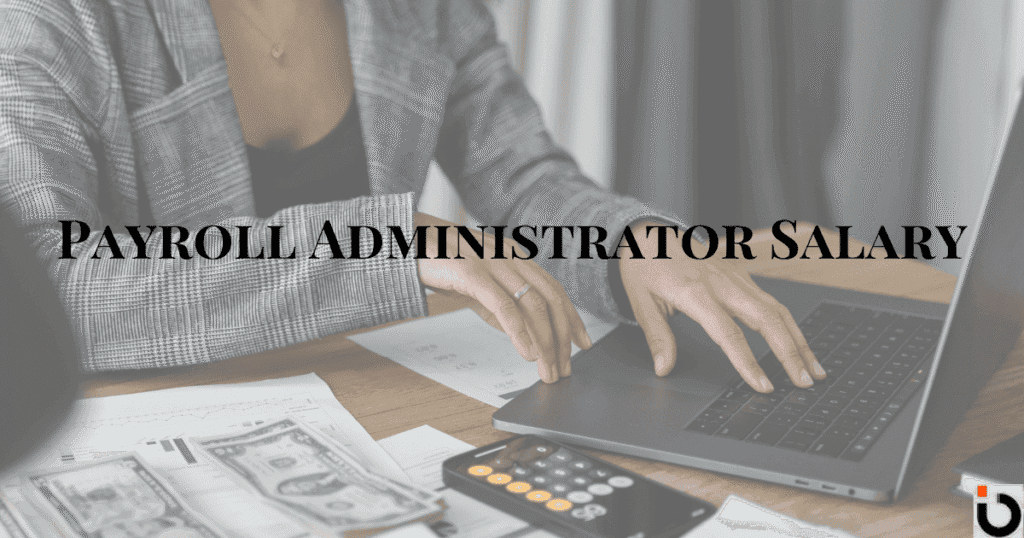Payroll administration remains a cornerstone of financial and HR operations in companies worldwide. While the core responsibility involves ensuring accurate and compliant pay distribution, modern payroll professionals increasingly influence broader workforce management and analytical functions in global organizations.
In job markets such as the United States, Canada, and GCC countries, prospects for payroll administrators extend beyond basic processing to strategic roles that intersect with HR systems, compliance, and payroll technology adoption. This guide explores the evolving payroll administrator career path, the skills that drive progression, and how opportunities differ across major international markets
Table of Contents
ToggleWhat a Payroll Administrator Does in Today’s Organizations
Payroll administrators are responsible for processing employee compensation, verifying hours, calculating deductions, and ensuring legal compliance within payroll systems. These professionals work closely with HR and finance teams to handle complex pay structures, benefits, and statutory reporting. Beyond checks and balances, today’s payroll roles increasingly engage with data analytics, system workflow design, and interdepartmental coordination to support operational efficiency.
Key responsibilities often include:
Payroll Processing and Cycle Management
Managing end-to-end payroll cycles, ensuring accurate and timely salary processing in line with organizational policies and statutory requirements.Regulatory and Compliance Coordination
Interfacing with tax authorities and regulatory frameworks to ensure payroll operations comply with applicable labor and tax laws across jurisdictions.Payroll Systems and Technology Management
Administering payroll software, maintaining system configurations, and optimizing reporting tools to support accurate and efficient payroll operations.Payroll Data Management and Integrity
Maintaining secure payroll records, ensuring data accuracy, confidentiality, and consistency across payroll and HR systems.Benefits and Compensation Administration Support
Coordinating with HR teams to manage employee benefits, deductions, and compensation components linked to payroll processing.Financial Record Keeping and Reporting
Preparing payroll reports, reconciling payroll data with financial records, and supporting internal financial controls.Audit Preparation and Compliance Support
Supporting internal and external audits through documentation, payroll reconciliations, and compliance verification.Employee Payroll Support and Communication
Addressing employee payroll queries, resolving discrepancies, and communicating payroll-related information clearly and professionally.Process Improvement and System Optimization
Identifying opportunities to streamline payroll workflows, improve system security, and enhance overall payroll efficiency.
For broader strategies on career progression across roles, see our Career Growth Roadmap.
Global Career Progression: From Administrator to Strategic Specialist
In mature job markets, payroll administrators can expand into roles that blend finance, HR, and systems optimization. Career pathways might include:
📍 Mid-Level Roles
Senior Payroll Administrator
Payroll Supervisor
These positions involve oversight of a team, advanced error resolution, and mentorship of junior staff.
📍 Advanced Roles
Payroll Manager
Compensation and Benefits Specialist
Leadership positions emphasize strategy, systems integration, and cross-functional initiatives.
📍 Cross-Functional Opportunities
Payroll professionals often transition into:
HR Systems Analyst
HR Operations Lead
Compensation Analyst
These paths reward broader business insight and data fluency.
Progression depends on both experience and skills such as workflow design, advanced payroll system proficiency, and regulatory expertise.
Essential Skills & Qualifications for Payroll Professionals
To excel as a Payroll Administrator, a unique blend of analytical prowess, meticulous attention to detail, and robust communication skills is paramount.
Core Requirements Often Include:
Educational Background: While a Bachelor’s degree in Accounting, Finance, Business Administration, or a related field is frequently preferred, practical experience combined with relevant certifications can also provide a strong foundation.
Proven Experience: Prior experience in payroll administration, accounting, or a related financial role is typically essential. Exposure to diverse payroll scenarios and complex compensation structures is highly valued.
Software Proficiency: Demonstrated expertise with leading payroll software platforms (e.g., ADP, Paychex, SAP, QuickBooks Payroll, Workday) and advanced proficiency in Microsoft Excel for data analysis and reporting.
Regulatory Knowledge: A deep understanding of payroll regulations, national and international tax laws, and fundamental accounting principles is non-negotiable for ensuring compliance and accuracy.
Analytical & Organizational Skills: Exceptional attention to detail, accuracy, and strong organizational abilities are critical for managing complex data sets and meeting strict deadlines.
Communication & Interpersonal Skills: The ability to communicate complex payroll information clearly and professionally to employees and management, fostering trust and resolving issues effectively. This role often requires working both independently and collaboratively within a team.
Skills That Accelerate Earning Potential
To move beyond foundational roles, strong payroll professionals develop:
✔ Technical Mastery
Payroll systems (e.g., ADP, Workday, SAP)
Data interpretation and reporting
Workflow automation tools
✔ Regulatory Knowledge
Tax and labor compliance across jurisdictions
Accurate deductions, benefits, and statutory filings
✔ Business Partnership Skills
Collaboration with finance and HR teams
Payroll data interpretation for operational insights
Payroll specialists who combine technical depth with business fluency often unlock advanced roles.
Certifications and Professional Credibility
Valued Certifications and Continuous Learning:
While not always mandatory, professional certifications can significantly enhance a Payroll Administrator’s credibility and career prospects. Globally recognized credentials include:
Certified Payroll Professional (CPP): Offered by organizations like the American Payroll Association (APA), this certification demonstrates comprehensive knowledge of payroll compliance and operations.
Fundamental Payroll Certification (FPC): Also from the APA, it’s ideal for those newer to the profession or seeking to solidify their foundational knowledge.
Other Country-Specific Certifications: For instance, in Canada, the National Payroll Institute (NPI) offers valuable certifications like the Payroll Compliance Practitioner (PCP) and Certified Payroll Manager (CPM).
Continuous professional development is vital to stay updated with ever-changing tax codes, labor laws, and technological advancements in payroll management systems.
International Market Demand
Different regions place distinct emphasis on payroll expertise:
🇺🇸 United States
Large enterprises demand payroll professionals with deep compliance and system integration skills. Payroll automation, benefits coordination, and regulatory reporting are core differentiators.
🇨🇦 Canada
Payroll administrators work in diversified industries, with increasing opportunities in midsize firms expanding HR operations.
🌍 GCC (UAE, Oman, Kuwait)
Regional demand often emphasizes value-added payroll expertise, such as compensation structuring, expatriate payroll, and cross-border compliance, especially within multinational business hubs.
Across all markets, adaptability to advanced payroll platforms and understanding of regional compliance standards elevates a professional’s career prospects.

Earning Potential and Compensation Growth
Payroll roles are traditionally stable but they vary by region, experience, and employer size. Rather than fixating on specific figures, professionals should consider total compensation packages that include benefits, bonuses, and market advantages like tax-efficient salaries in certain regions.
Relative trends indicate that payroll roles evolve with industry demand:
Early career roles focus on operational accuracy
Mid-career roles emphasize leadership in process innovation
Senior roles involve compliance strategy and department oversight
Upgrading skills, attaining recognized certifications (e.g., CPP, FPC), and gaining cross-functional experience are proven levers for compensation growth.
Read other Career Blogs
The Payroll Administrator: A Strategic Asset
Beyond the immediate task of processing paychecks, a skilled Payroll Administrator contributes significantly to an organization’s financial health and strategic objectives. They are instrumental in:
Ensuring Compliance: Mitigating legal and financial risks associated with non-compliance in tax and labor laws.
Cost Management: Providing accurate data for budgeting, forecasting, and managing labor costs effectively.
Employee Satisfaction: Ensuring accurate and timely pay, which is a fundamental driver of employee morale and retention.
Data-Driven Decisions: Supplying critical payroll analytics and reports that inform human resources strategies and business planning.
Finding Your Path as a Payroll Administrator
Opportunities for Payroll Administrators exist across virtually every industry, from small businesses to large multinational corporations. Job roles might be found in dedicated payroll departments, human resources departments, or finance divisions. Many online platforms specialize in connecting talent with payroll career opportunities.
Frequently Asked Questions
What does a Payroll Administrator do?
A Payroll Administrator manages end-to-end payroll processing, ensuring employees are paid accurately and on time. The role involves handling payroll records, deductions, benefits coordination, and compliance with labor and tax regulations while maintaining data accuracy and confidentiality across payroll systems.
What key skills boost a Payroll Administrator’s career progression?
Career progression depends on strong payroll system expertise, regulatory and compliance knowledge, analytical reporting skills, and effective cross-functional collaboration. Professionals who combine technical payroll proficiency with business understanding and system optimization capabilities advance faster into senior and managerial roles.
Can Payroll Administrators earn globally competitive compensation?
Yes. Payroll Administrators with advanced system expertise, compliance knowledge, and experience supporting multinational or multi-country payroll operations can access higher compensation bands. Global companies value professionals who manage complex payroll environments, regulatory requirements, and payroll technology at scale.
Is certification necessary for Payroll Administrator career growth?
Certifications are not always mandatory but significantly enhance credibility and career prospects. Professional credentials such as Certified Payroll Professional (CPP) or Fundamental Payroll Certification (FPC) demonstrate expertise, improve visibility for senior roles, and often support faster progression into supervisory or specialist positions.
What payroll software is commonly used by Payroll Administrators?
Payroll Administrators commonly work with enterprise payroll platforms such as ADP, SAP, Workday, Paychex, and QuickBooks Payroll. Experience with these systems improves efficiency, reporting accuracy, and employability, especially in organizations operating across multiple regions or complex payroll structures.
How do Payroll Administrator roles differ across global regions?
In the US and Canada, payroll roles emphasize deep compliance, system integration, and reporting accuracy. In GCC markets, additional value comes from managing expatriate payroll, cross-border compensation structures, and region-specific regulatory requirements within multinational organizations.
How do Payroll Administrators ensure compliance with tax and labor laws?
Payroll Administrators ensure compliance by staying updated on regulatory changes, accurately applying tax withholdings and deductions, maintaining detailed payroll records, and supporting internal or external audits. Strong compliance processes reduce risk and protect organizations from penalties or reporting errors.
What challenges do Payroll Administrators face in modern organizations?
Key challenges include adapting to evolving regulations, managing complex benefits structures, ensuring payroll data security, integrating new HR and payroll technologies, and supporting remote or distributed workforces across multiple jurisdictions.
What is the typical career progression for a Payroll Administrator?
With experience and continuous skill development, Payroll Administrators can progress to Senior Payroll Administrator, Payroll Supervisor, or Payroll Manager roles. Many also transition into HR operations, compensation and benefits, payroll systems analysis, or broader finance leadership positions.
Conclusion
A payroll administrator role is a foundation for deeper HR and finance careers with global opportunities. By enhancing technical expertise, regulatory knowledge, and business partnership skills, professionals can progress into supervisory and strategic positions that carry higher impact and compensation. Whether operating in the US, Canada, or GCC markets, payroll professionals who adapt to advanced systems and compliance requirements position themselves for long-term career growth and resilience.
Industry Collaboration
Interview Cracker publishes research-driven content on payroll operations, workforce administration, and compliance practices used in modern organizations.
We occasionally collaborate with payroll professionals, HR teams, and workforce solution providers to share practical insights on payroll governance and operational best practices.





